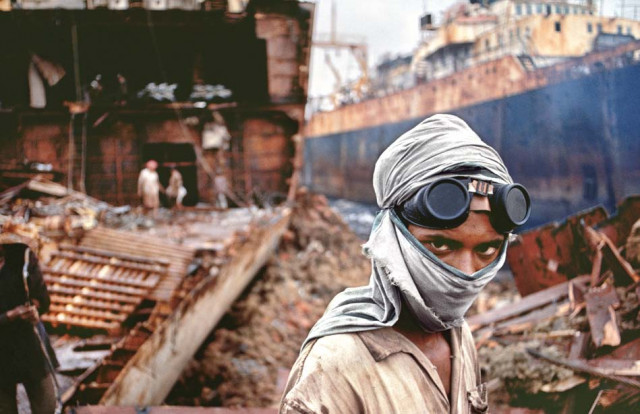Iron and steel: Ship breaking industry meeting 70% requirements
Number of people employed at Gaddani shipyard increases.

The ship breaking industry is currently meeting 70% of the iron and steel requirements of the country, following revival of work at the Gaddani shipyard in Balochistan, claimed a report on Wednesday.
With the increase in activity at the Gaddani shipyard, the number of people employed there has also risen to 12,000, said the Engineering Development Board (EDB) report quoting the Pakistan Ship Breaking Association.
The ship breaking activity at Gaddani Shipyard has peaked over the last 12 recorded years with more than 50 large ships being dismantled currently, the report added. It said that 95% of the old scrap metal is recycled and reused, adding that the shipyard industry meets the country’s demand for steel, steel-related products and non-ferrous products and machinery. Ships are reduced to the extent that even wash basins, toilets, wooden doors, and such other things in old ships are reused, the report said.
When it was built in the 80s, Gaddani was the largest ship breaking yard in the world. Now it is the third-largest, after Alang in India, and Chittagong in Bangladesh. Because of the environmental and health hazards that usually accompany ship breaking and low labour costs, South Asia has emerged as a hot spot for developed countries because ship breaking yards in the region operate without personal injury lawsuits and workers’ health claims.
“A few years ago, the ship breaking industry was on the verge of collapse with little activity,” the report said. Breakers used to smuggle in pipes from Russia, Ukraine and other former Soviet states as a substitute, but even that petered out, it added. While the imports from Ukraine continue, they only amount to 20 per cent of the requirement of re-rolling mills, the Karachi Iron and Steel Merchants Association said.
Pakistan Steel Mills has not been working at its full capacity and cannot fulfill the country’s requirements, so iron and steel obtained from the ship breaking helps meet the demand, the report said.
Most of the re-rolling and re-melting mills have once again become dependent on the Gaddani ship breakers for supplies and hundreds of steel re-rolling and re-melting mills in the country depend heavily on the ship breaking industry for the supply of ship plates. “Purchasing even expensive vessels is profitable because of high demand,” the report claimed.
Karachi Iron and Steel Merchants Association said that currently Gaddani ship breaking is making most of the requirement of re-rolling mills. About 20% requirement is fulfilled by imports from Ukraine, Turkey and former Soviet countries and by Pakistan steel. But material supplied by ship breakers is much cheaper than that sold by Pakistan steel as Gaddani ship breaking raw material is available at cheaper rate of Rs55,000 per ton.
Published in The Express Tribune, July 28th, 2011.


















COMMENTS
Comments are moderated and generally will be posted if they are on-topic and not abusive.
For more information, please see our Comments FAQ